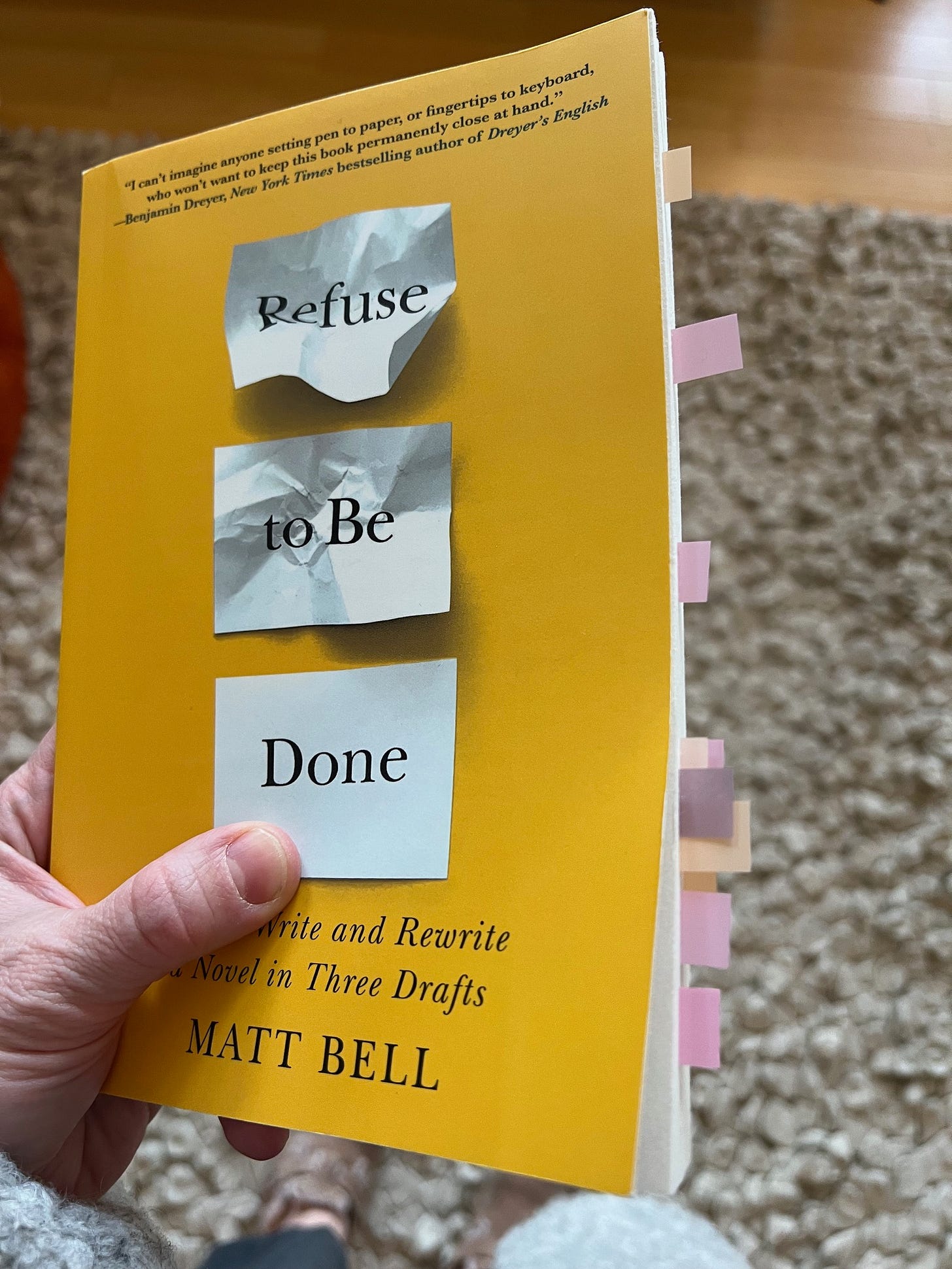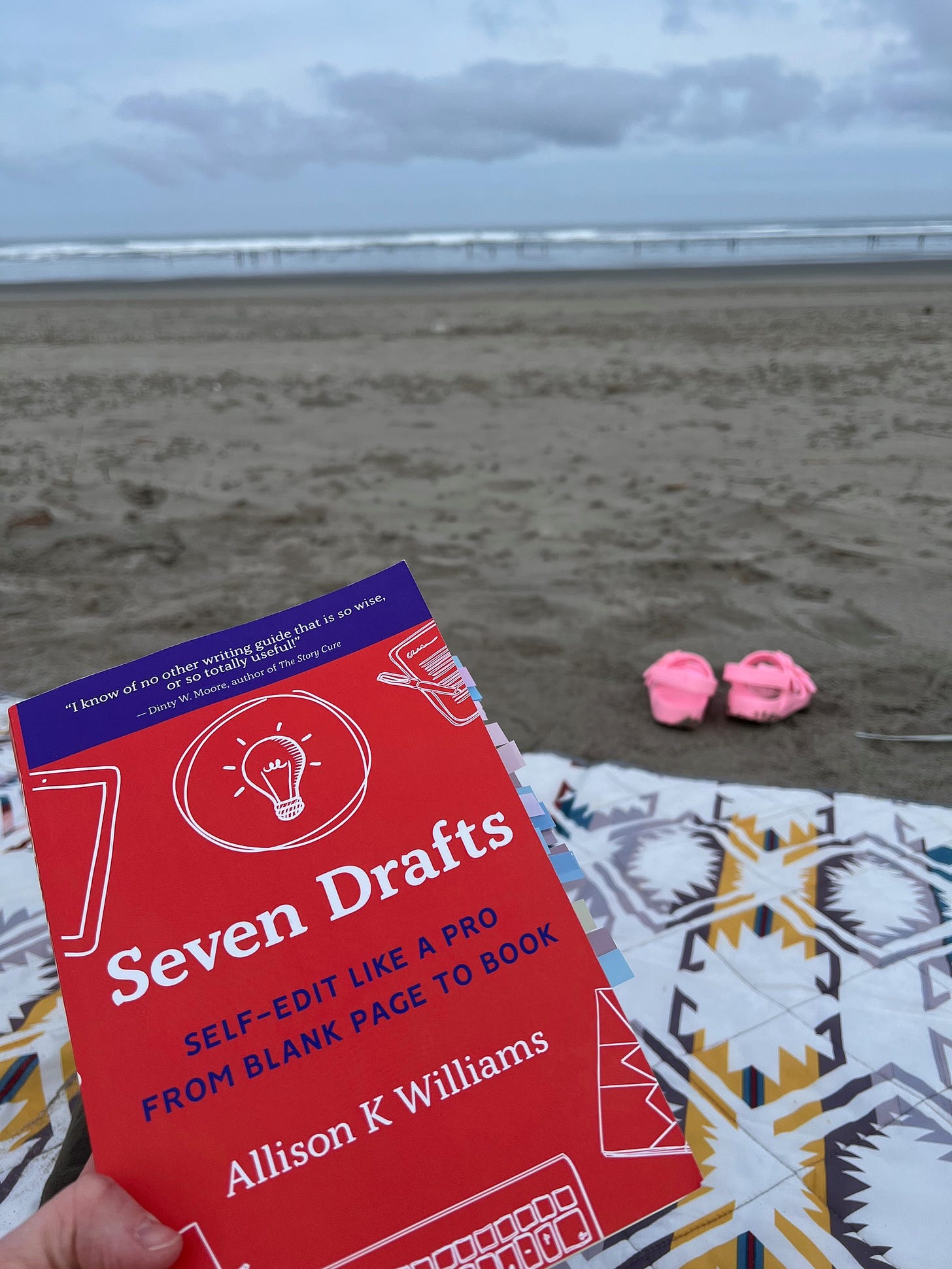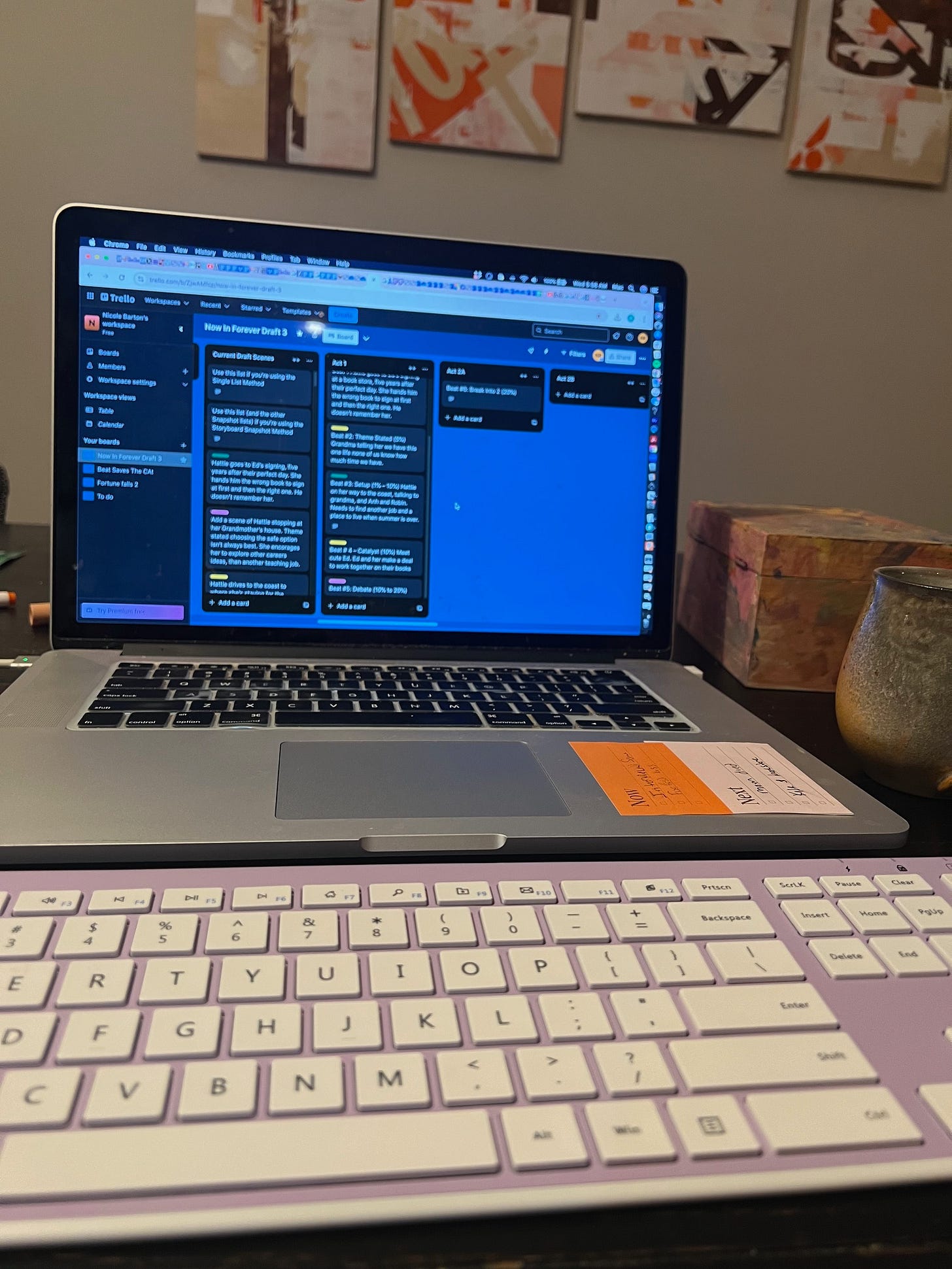Congratulations! You finished a first (or second or third) drat of a book! That’s no easy feat and you should take a moment, if you haven’t already, to acknowledge that.
Now it’s time to revise. And I don’t mean looking for grammar mistakes—that will come way later. I’m talking about the hard work of looking at your story with a critical eye, tearing it apart and stitching it back together better than before.
Easy Peasy, right?
Sigh. Wrong.
It is the hardest thing there is. Killing your darlings. Sometimes axing entire characters. Whole chapters gone. The opening re-written so many times you can’t even remember how your book begins anymore or why. It can be extremely overwhelming.
I’ve found that the more organized and small goal oriented you can be during this process, the easier and more fulfilling it becomes. Alyssa Matesic says “revising is where the magic happens.”
While I used to think that was crazy, now in my fourth round of major revisions on my WIP, I see it. I’m starting to feel the magic in this process.
Here are some resources that I’ve found extremely helpful.
1. Refuse to Be Done: How to Write and Rewrite a Novel in Three Drafts by Matt Bell
This book is full of valuable information for the revising writer. Be warned, one of the three easy steps involves rewriting the entire book. That’s right, no copying and pasting. Rewrite every single word. The thinking behind it is, you’re less likely to rewrite a bad sentence. Instead, you’ll make it better. But if you copy and paste you might not even notice the awkwardly worded sentence or tell yourself you’ll fix it later. I’ve tried this and, as upsetting as it is, he’s absolutely right. My next draft was so much better for it. But even if you decide this step is not for you, there are other techniques you will be able to use. I promise.
2. Seven Drafts: Self-Edit Like a Pro from Blank Page to Book by Allison K Williams
“Seven drafts?!” I thought when I first picked up this book. But now I’d welcome only seven drafts. This book goes from macro to micro, with detailed information on how to tackle each step. It also has sections on how that step specifically works in a memoir. I highly recommend this book.
3. The Complete Novel Revision Course Webinar by Jessica Brody
This course was a game changer for me. It breaks down the revision process into three levels: THE STORY LEVEL (or Developmental Edit), THE SCENE LEVEL (or Detailed Edit) and THE PAGE LEVEL (or Line Edit). Jessica shares how she keeps her revision process organized using the app Trello (free) and even shares a template with you to get started. It’s amazing and has not only helped me stay organized, but has also kept me from feeling overwhelmed by the sheer magnitude of the process. Right now, the course is $15 dollars a month and you can cancel at anytime. It also gives you access to all her other courses on the site. Love, love, love this.
4. The Ultimate Guide to Revising Your Novel by Alyssa Matesic on YouTube
I know I have mentioned her before, even in this article, but Alyssa’s content is top notch. Her X posts, her YouTube channel, and her Substack all have so much clearly laid out, valuable information for writers. This video is just a little over ten minutes and gives a great guide on how to revise your novel in broad strokes. And this resource is free! Woot woot!
5. Beta Readers and Critique Partners
Beta readers are necessary. No matter how much space you give your novel, it still came from your brain and because of that, you’ll never see it the same way a reader will. Beta readers help by giving you their opinion on your work. There are many places to find beta readers. Bianca Maris from The Shit No One Tells You About Writing hosts a match-up almost every month. The cost (at the time of this article) is $25. Many writers I know have been successful in finding critique partners this way. I have two writing groups, one for mystery (although they’ve been graciously reading my romances) and one for romance that formed from her match-up.
Other ways to find critique partners or beta readers is to join a local writing group. None in your area? Attend an online write-in. NaNoWriMo hosts them in November and July. Kym Summers hosts them throughout the year. Hers are 90 minutes on Monday evenings (7pm ET) and Thursday mornings (10am ET) - you can email her to be added to the invite: ksummerswrites@gmail.com or DM her on Instagram. These are great way to make writer buddies that may, one day, become beta readers.
Be sure to read my Substack series Tell Me Your Ways, where authors from all different stages of their publishing journey walk us through their revision/writing process.
I sincerely hope something in this article will help make the process of revising your novel smoother and more enjoyable. If writing a book was easy, everyone would do it. It’s not easy, but that doesn’t mean it can’t be done. You’ve got this!
Any tips and tricks you have? Drop them in the comments.











